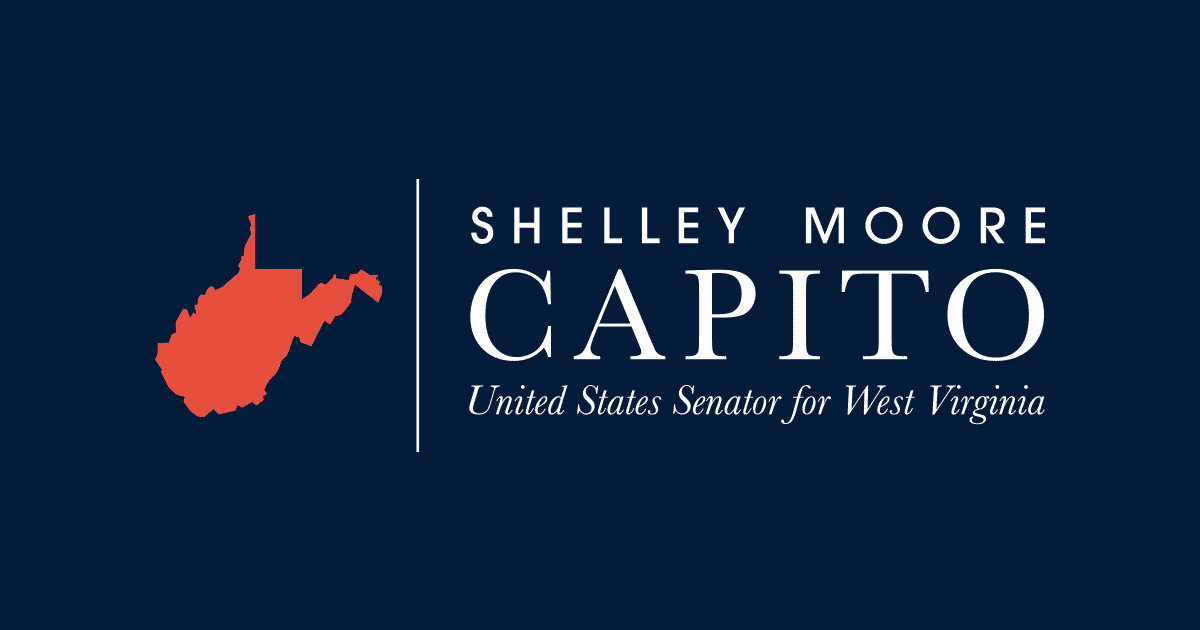Source: United States Senator for West Virginia Shelley Moore Capito
WASHINGTON, D.C. – In an op-ed published Sunday in the Charleston Gazette-Mail, U.S. Senator Shelley Moore Capito (R-W.Va.), Ranking Member of the Senate Environment and Public Works (EPW) Committee, wrote about the need to substantively reform America’s broken permitting and environmental review process, and the impact it would have on West Virginia. Capito also discussed how to deliver real solutions, which include two pieces of legislation she recently introduced to streamline energy, infrastructure, and transportation projects of all kinds.
“A business looking to expand in West Virginia shouldn’t have to wonder if their investment will be tied up or lost because of roadblocks and endless project delays. State officials in West Virginia shouldn’t feel handcuffed by a federal bureaucracy and court system that works against them every time they want to move a key transportation, energy, or infrastructure project forward,” Ranking Member Capito writes.
The full op-ed is available here and below.
No more holdups on permitting
By: U.S. Senator Shelley Moore Capito (R-W.Va.), Ranking Member of the Senate Environment and Public Works (EPW) Committee
Charleston Gazette-Mail
May 7, 2023
In West Virginia, we’ve become all too familiar with the trials and tribulations of well-known projects like Corridor H, the Mountain Valley Pipeline, and the new Nucor steel mill face as they navigate the burdensome federal review process and any litigation that follows.
Businesses often clear a regulatory hurdle only to find themselves right back in permitting purgatory after an agency changes its mind on a permit or outside groups file a frivolous lawsuit.
In practical terms, these project starts and stops, court delays, and unending attempts to prevent project completion hurt all of us in West Virginia.
For starters, it means fewer people are working. First and foremost, these are job-creating projects. Whether it’s road construction, manufacturing, or extracting and transporting energy resources, an incomplete project results in fewer employment opportunities for West Virginians.
Second, it means higher prices for consumers. When the permitting process itself takes longer than actual construction of a pipeline, power plant, transmission line, or manufacturing plant, it means less American energy production and increased dependence on foreign energy and supply chains. This all translates to increased everyday costs for West Virginia’s families and workers.
And third, it means less investment and economic growth in the future. Opening up a business takes risk. When investors and companies see more red tape, building delays, and more hoops to jump through, it discourages investment and growth right here in West Virginia and across the country.
The current federal permitting and environmental review system is a sea of always-changing requirements. Added on over the years with no real rhyme or reason, these requirements create hurdle after hurdle for all kinds of projects and a game of regulatory whack-a-mole. This game is holding our state back in countless ways.
To untangle this web, I recently continued my efforts to enact commonsense reforms by introducing two pieces of legislation, joined by Senator John Barrasso of Wyoming, aimed at streamlining the permitting process, making it easier to build and produce energy here in America, and lowering the prices of gas, electricity, and other basic necessities.
Our legislation simplifies and improves the process for all major projects, including energy projects of all kinds: renewables, natural gas, coal, you name it.
It’s no secret the federal bureaucracy could be more efficient, collaborative, and timely in the work they do, and this is especially true when it comes to approving permits. We want to put in place enforceable timelines on project reviews to ensure the work gets done on time and bureaucrats are delivering for the taxpayer.
My bill ensures key environmental protections remain in place and that everyone can have a day in court, not endless days in court. Specifically, our legislation would also expedite the completion of the job-creating Mountain Valley Pipeline, which is critical to West Virginia, but has been needlessly held up by legal challenge after goalpost-moving legal challenge, despite being 95% complete.
Our bills cut red tape and prevent project delays, which will provide needed stability and predictability to employers who want to create jobs and contribute to a growing economy.
A business looking to expand in West Virginia shouldn’t have to wonder if their investment will be tied up or lost because of roadblocks and endless project delays. State officials in West Virginia shouldn’t feel handcuffed by a federal bureaucracy and court system that works against them every time they want to move a key transportation, energy, or infrastructure project forward.
The legislation we introduced is the starting point to addressing these challenges in the right way. We will get the best solutions by going through regular order here in Congress, starting with the committee process. Backroom deals simply won’t cut it.
On the Environment and Public Work Committee where I’m the lead Republican, we’ve begun this important work with public hearings, and now, with legislation. I’m looking forward to leading our work together with Republicans and Democrats to enact real permitting reform, and I’m confident we can.
If we’re successful, we’ll get more West Virginians working, lower energy costs for consumers, and make our great state a destination for future investment and growth.
U.S. Senator Shelley Moore Capito is the Ranking Member of the Senate Environment and Public Works Committee, and also serves on the Appropriations, Commerce, and Rules Committees.
# # #
